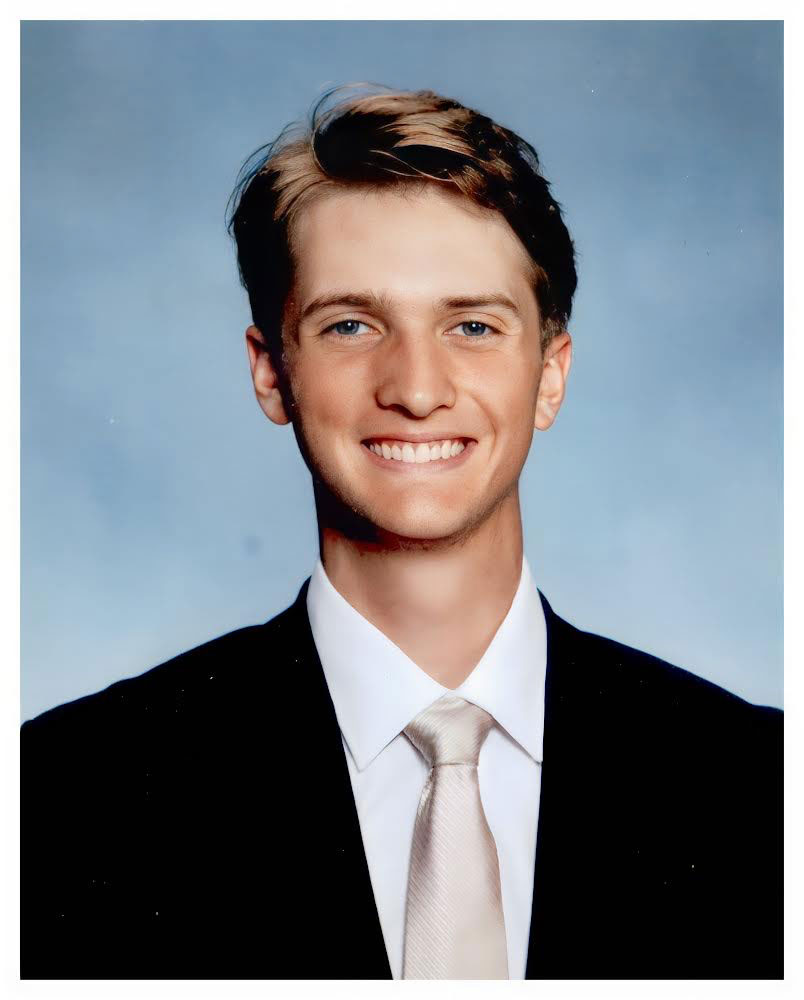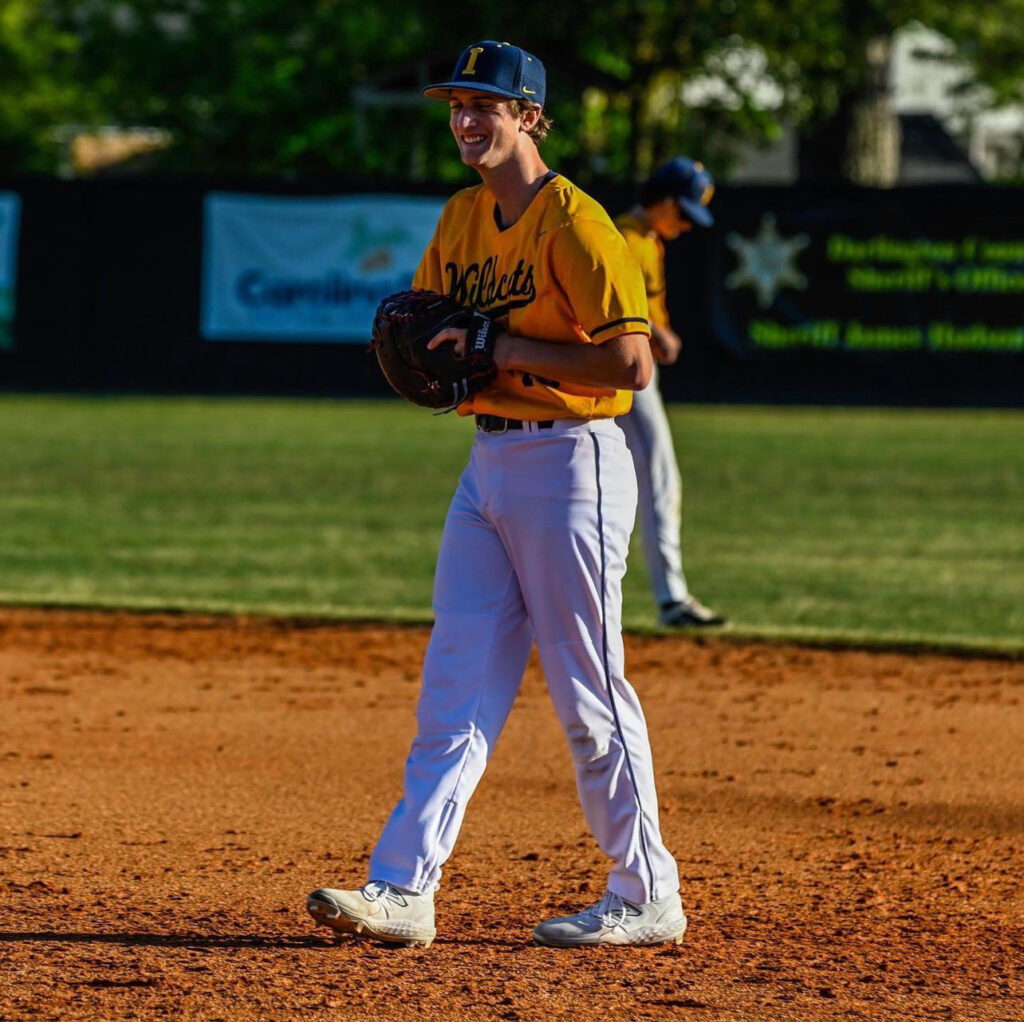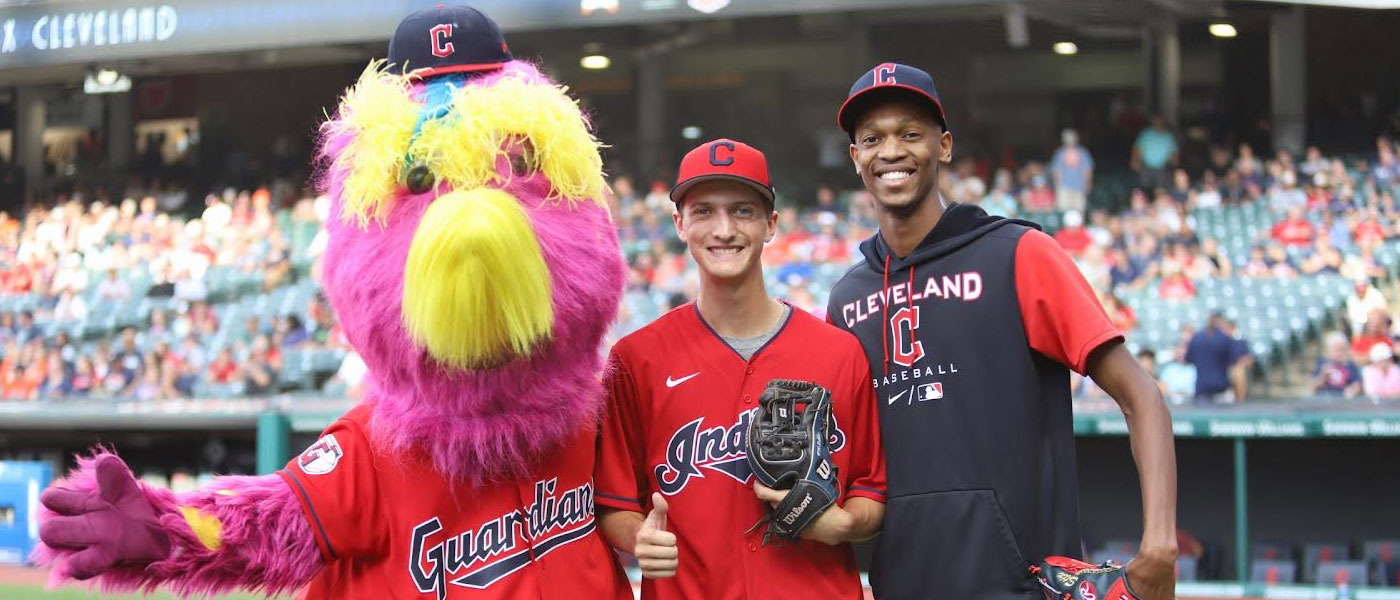In September 2020, Robert Boyce went from a weight room to an operating room in mere hours. Then a 16-year-old sophomore at St. Ignatius High School, Boyce suffered a rare, life-threatening stroke called a subarachnoid hemorrhage.

Facing severe bleeding and concerns about further swelling of his brain, Boyce was placed in a medically induced coma for several days. When he woke up, he didn’t remember anything—but was about to embark on a months-long fight to return to normalcy. Alongside his family, the Broadview Heights, Ohio, native worked hard to return to school—and the baseball field.
His recovery was so impressive, he was recognized in 2022 as the Cleveland Clinic’s Courage in Sports Medicine Award winner during the Greater Cleveland Sports Commission Awards ceremony.
Boyce now has a new outlook, and doesn’t take the everyday aspects of life for granted. But even more changed for him. After his experience through this medical emergency, he realized he wanted to be a doctor, a dream he is now working toward as a first-year student majoring in biology at Case Western Reserve University.
Hear Boyce recount his experience in an interview with Spectrum News and learn more about him with the Q&A below.
Answers have been lightly edited for clarity and length.
1. How did your experience transform or reinforce your educational goals?
This experience most certainly did not deter the hardworking attitude my parents had instilled in me, but it did give me a new perspective and goal to be able to work toward. I was not very sure what I wanted to do with my life before this, but this experience helped me to realize my calling was to use the gifts I had been given to help others as a doctor. This new goal has helped me through tough classes I have found myself in as well as given me motivation to keep working even when I have wanted to give up.
2. What was the most challenging aspect of recovery?
The most challenging aspect of my recovery was looking at the overall ground that I would have to make up in order to not just get where I wanted to be but to even get back to where I was before. This huge step back I had taken because of my injury was difficult, but being able to take small steps each day and focusing on small goals allowed me to reach where I had wanted to get and beyond.
3. During your recovery, were there any moments that felt like turning points or were particularly meaningful to you?
It feels a bit strange to look back on it, but I feel like now, I fully understand the importance of even the little things that I was able to return to doing. It was important for me to try to focus on the day to day and the small achievements that I could have each day, but I could never completely lose sight of some of those lofty goals that were the most important to me. Looking back though, I am able to much better understand some of the important milestones that I did hit such as when I first returned to practicing baseball or when I finally was able to return to school in-person.

4. What did it mean to you to be able to return to playing sports? What was that first game back like?
I felt like my return to playing baseball was one of my largest accomplishments. Being able to make it back to my team and being able to contribute in a positive way was one of my ultimate goals especially given how much progress my body lost. My first game back truly felt like a culmination of all of the hard work that I had put in from that very first day I began walking again to be able to step onto the field and be a key member of my team.
5. What made you decide to come to CWRU?
There were a couple influences that made CWRU feel like the right fit for me. The first of these details was its prowess preparing students for a medical career. Given my new desire to become a doctor, this felt especially important for me to be completely prepared to one day save others as I was saved. Another important aspect is its proximity to the city. Given that my high school was also very close to Cleveland, I feel like being close to the city can help me continue to commit myself to service like in high school.
6. Are you involved in any student organizations?
I am currently involved with the MedWish organization. I really enjoy helping out with this because I feel that it is an important way to combine my love of service with the medical field. I am able to give of my time to help these people who are the most in need while I am also learning important leadership skills that will help me later on in my career.

